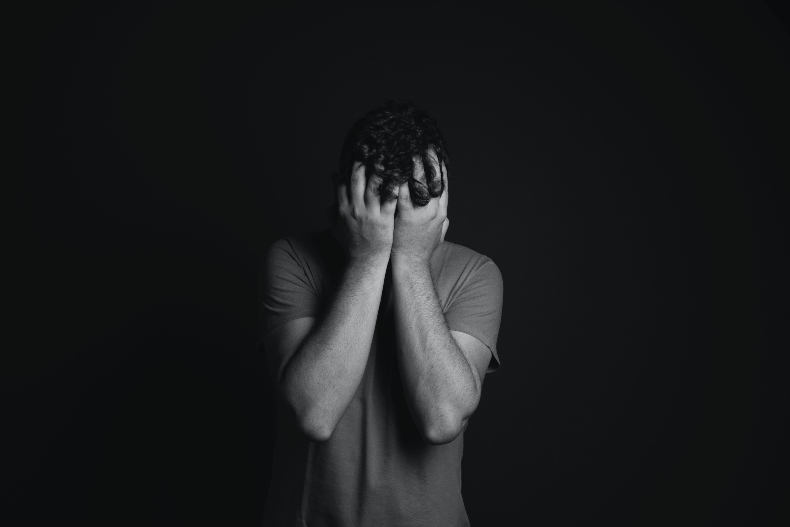6 Signs Your Mental Health Is Declining

Mental health problems do not discriminate based on gender, race, age, ethnicity, or socioeconomic status. A wealthy, strong-looking person can be fighting mental health conditions, and you wouldn’t know.
Approximately 50 million Americans experience mental health problems yearly. Often, the underlying symptoms of mental health issues are not diagnosed in time. And if mental health is not given due attention, there are chances of developing dangerous coping mechanisms subconsciously.
Symptoms of mental health conditions are often not tangible or physical; hence, a person is likely to ignore them. To take care of it, you need to assess your behavior and feelings to identify the potential signs that show your mental health is declining. Here are six signs.
You Isolate Yourself
If you often isolate yourself from family and friends, it might be a sign of an underlying mental health issue. You might feel unable to express your feelings openly to your loved ones and feel like you will burden them by sharing your difficulties or; you don’t understand or relate to them, etc. And thus, you avoid them and isolate yourself.
What you can do is start participating in social activities gradually. You can also join a support group that is relevant to your situation. For example, if you are suffering from a disease, say mesothelioma, and it is affecting your mental health, you may tend to isolate yourself, thinking no one understands you. In that case, you can join a mesothelioma support group to cope with its mental side effects. You get to share your problems and concerns with people going through the same things so they can relate and offer valuable advice and insight.

Changes in Eating Patterns
Many factors alter your eating patterns, and they keep changing through various stages of life. However, if there is a drastic change in your eating habits, that might be a sign of mental health issues such as stress and depression. People having depression often fall on one of the extreme ends of eating. Some people completely lose their appetite, while others overeat. Both of these situations are alarms of danger. You might have developed an eating disorder and don’t even realize it.
If you don’t feel like eating at all, start by having at least one proper meal daily and gradually increase the amount. And if you overeat, try to start eating healthy portions and limiting junk food intake. However, it is imperative to consult a professional first.
Unexplained Physical Symptoms
In the case of mental health problems, the effects can typically be seen in your deteriorating physical health. 50% of people who suffer from chronic pain conditions have symptoms of depression. People who have depression are also more sensitive to pain.
If you feel a constant ache in your body, like a stomachache or headache, and there doesn’t seem to be a ‘physical reason,’ then it might be due to stress. When we feel stressed, our body releases a hormone called cortisol, which prepares the body to fight stress in the short run. By being under stress constantly, there is more than the excess release of cortisol, which leads to a weakened immune system and other health concerns like cardiovascular problems, flu, or cold, all the time.
In this case, self-diagnosis and self-medication can be dangerous. Keep a record of all your symptoms and be sure to discuss them with your general physician. Only a professional can guide in this case.
Constantly Tired
It may not surprise you that people with mental health issues feel tired all the time. Everybody gets tired in today’s fast-paced world, but if you feel constant fatigue, this might be a sign of declining mental health. There is so much going on in a person’s brain who has mental health problems; it becomes exhausting. In their heads, they are constantly fighting negative thoughts, and at the same time, they have to keep up with school, work, and general life activities. This drains them of energy.
Such people are also afraid of getting judged and stigmatized. So they hide their issues and pretend to be ‘normal,’ further extracting every ounce of their energy. Thus, it seems like nothing is wrong, but they are dealing with so much in the background.
Avoiding your feelings and thoughts is very tiring. It is difficult to self-manage this symptom, and better to get checked by your healthcare provider. Avoid filling the energy gap with too many energy drinks, excess coffee, or other stimulants.

Disrupted Sleeping Pattern
If you have disrupted your sleeping pattern, it might be due to stress, anxiety, or depression. You might find yourself unable to sleep sometimes at all and sleeping way too much at other times; neither is a healthy situation. Depression can cause sleeping disorders. There is a strong link between sleep disorders and mental health.
And the thing about sleep is that it has a bidirectional link with mental health issues. This means mental health issues affect sleeping patterns, and in turn, poor sleeping patterns further worsen mental health. Thus, you can’t sleep because you feel depressed, and then lack of sleep adds to depression even more, and so on.
Check-in with a therapist or a doctor or improve your sleep hygiene. This means not using a phone before sleeping, not having coffee, energy drinks, or other stimulants right before bedtime, and having a comfortable pillow and mattress.
Feeling Guilty All the Time
If you find yourself in a constant state of guilt or saying things like “I am unworthy, it is all my fault; no one will ever love me, I am a failure.” This is a clear indication of poor mental health. Due to depression and stress, a person develops such intrusive thoughts. You may often cope with such feelings by making fun of yourself in the form of demeaning humor, like how awful you are at things or calling yourself a loser all the time or apologizing for things, etc.
This can result from trauma, abuse, or mental health problems. You need to understand the situation fully and deeply before slipping into guilt. If you did not cause harm or an issue, then you are not to blame for it. A counselor can help you better.
Conclusion
Just like there are skincare and workout routines, to take care of our skin and body, you need to take care of your mind too. Most mental health issue symptoms are right in front of our eyes, and we ignore them. Take a look at these six signs of declining mental health. If you or your loved one is experiencing such things, it’s time to step up and start taking care of your mental health.